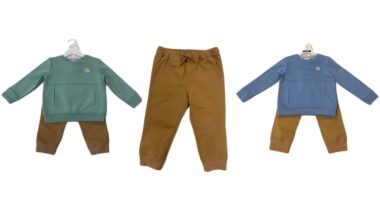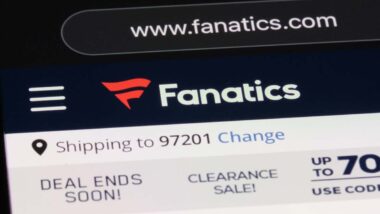Top Class Actions’s website and social media posts use affiliate links. If you make a purchase using such links, we may receive a commission, but it will not result in any additional charges to you. Please review our Affiliate Link Disclosure for more information.
The Children’s Place is facing a class action lawsuit from a customer who claims that the retail chain lures customers with emails that advertise fake sales.
The Children’s Place fake sale class action lawsuit was filed by Washington resident Elaine Dougan who says she received emails from the company advertising numerous sales.
However, Dougan asserts that these “sales” were not real, because the items that were purportedly discounted were never offered at the higher, “original” price, or were offered at that price very rarely.
Providing more detail, Dougan argues that since at least March 2019, the company has sent out hundreds of mass emails advertising fake sales. The Children’s Place emails present deception as soon as in the subject line, says Dougan, touting discounts like “XX% Off Entire Site,” “XX% Off Entire Store,” or similar language.
According to Dougan, these subject lines were misleading because “everything” in the store was not offered for 60% off. Dougan asserts that the average consumer would not understand these messages to be misleading, and would believe them.
According to The Children’s Place email advertising class action lawsuit, the retailer’s conduct violates the Washington Commercial Electronic Mail Act.
She says that the law prohibits businesses from sending deceptive commercial emails that contain false or misleading information.
The law allegedly stipulates that an injury occurs any time that a commercial email is sent that contains false or misleading information in the subject line, regardless of whether or not a consumer consented to receive the email.
Under the Washington Commercial Electronic Mail Act, Dougan seeks an injunction barring the company from continuing to send deceptive emails to consumers like those at issue in The Children’s Place email class action lawsuit. She seeks benefits for herself and all other consumers who were affected by deceptive emails supposedly sent by The Children’s Place.
Specifically, Dougan seeks to establish a Class of all Washington residents who received an email from the Children’s Place with the subject line “XX% Off Everything,” “XX% Off Entire Site,” “XX% Off Entire Store,” or similar. She does not provide a time period in which consumers would have received these emails to be considered Class Members, instead including all consumers who were sent the emails “within the applicable limitations period” for her claims.
The Children’s Place email ad class action lawsuit then goes on to allege that the store violated the Washington Consumer Protection Act by misrepresenting its products to consumers. She says that the company intentionally misled customers into believing that the products being offered had a greater value than they did, because of the fake sales.
Allegedly, The Children’s Place is well aware that consumers are more likely to make a purchase if they believe it is being offered on sale, because they perceive its value to be higher than the price. According to Dougan, the store took advantage of this essential way that consumers attempt to understand value, and misled them by misrepresenting the value of the items.
Dougan says she and other consumers were financially injured by The Children’s Place discount ad practice because if they had not been told that the item was worth more than the sale price, they might not have agreed to purchase it at all, or would not have paid as much as they did for it.
Allegedly, most consumers have no option but to rely on retailers to faithfully represent the prices and values of the items they sell. However, she argue that The Children’s Place abused that trust in the interest of enhancing its own profits.
This is not the first The Children’s Place discount class action lawsuit to be filed — previously, consumers argued that the retailer misled consumers about sales both in-store and online, advertising that items had been sold for higher prices previously.

The Children’s Place agreed to settle those claims in a $6.8 million settlement, providing consumers with vouchers as settlement benefits, to be used on future purchases.
How do you decide when to buy an item? How do you determine what is a good price? Share your thoughts in the comments section below.
Dougan is represented by Daniel M. Hattis, Paul Karl Lukacs, and Che Corrington of Hattis & Lukacs.
The Children’s Place Discount Class Action Lawsuit is Elaine Dougan v. The Children’s Place Inc., Case No. 2:20-cv-00818, in the U.S. District Court for the Western District of Washington at Seattle.
ATTORNEY ADVERTISING
Top Class Actions is a Proud Member of the American Bar Association
LEGAL INFORMATION IS NOT LEGAL ADVICE
Top Class Actions Legal Statement
©2008 – 2024 Top Class Actions® LLC
Various Trademarks held by their respective owners
This website is not intended for viewing or usage by European Union citizens.
















42 thoughts onThe Children’s Place Class Action Alleges Fake Sale Scheme
Add me there making me pay $2 for a fees charged after my balance was paid in full month before